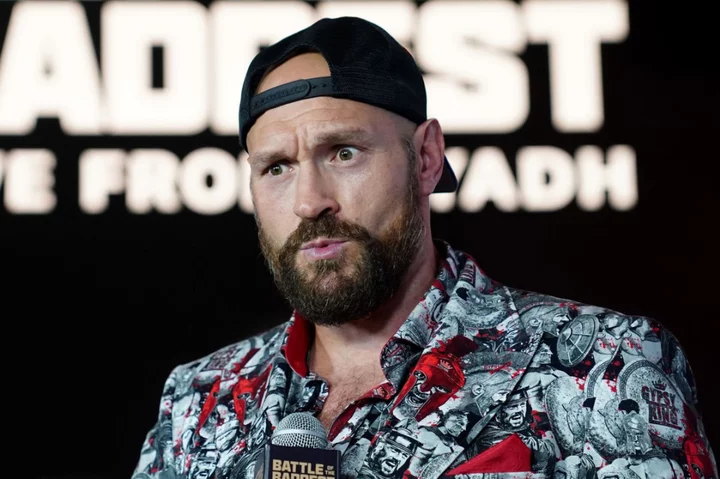
Tyson Fury claims he would beat Francis Ngannou in MMA fight
Tyson Fury has claimed that he would beat Francis Ngannou in a mixed martial arts fight, ahead of the heavyweights’ boxing match in Saudi Arabia. Fury, who holds the WBC heavyweight title, will box the ex-UFC heavyweight champion in Riyadh on 28 October, but the Briton has hinted that he already has his eyes on a rematch in a different discipline. Speaking at the press conference for the pair’s boxing match, which has been billed ‘Battle of the Baddest’, Fury said on Thursday: “I’d like to fight Ngannou in the cage, I think I can beat him for sure. “He’s not a good wrestler; he’s known for striking, and I’m a better striker than him. In little gloves, I’d knock him out in seconds. “I’d fight [current UFC heavyweight champion] Jon Jones also in the cage, if the money was right.” Meanwhile, Ngannou said on stage: “I always ask myself, ‘What will happen when that guy hits the floor? Are you still the best boxer in the world now?’” The 35-year-old Fury, whose WBC title will not be on the line on 28 October, has come under criticism for choosing to face Ngannou, 37, instead of unified heavyweight boxing champion Oleksandr Usyk, 36. Asked about his decision to box the Cameroonian, Fury said: “Obviously I’m getting paid a hell of a lot of money, and I get millions of people from MMA and boxing who are gonna watch it. “Whether they like that I’m doing it or not, guess what they’re gonna do? Still watch it.” Fury last fought in December, beating Derek Chisora for the third time to retain the WBC belt and stay unbeaten. Fury won the bout via TKO in Round 10. Meanwhile, Ngannou last fought in January 2022, outpointing Ciryl Gane to retain the UFC heavyweight title. Ngannou, widely deemed the hardest puncher in MMA history, then vacated the title this January while leaving the UFC. He proceeded to sign with a rival company, the Professional Fighters League, which allowed him to box before he makes his promotional debut in 2024. Click here to subscribe to The Independent’s Sport YouTube channel for all the latest sports videos. Read More Why Israel Adesanya vs Sean Strickland may turn ugly, quickly Adesanya vs Strickland live stream: How to watch UFC 293 online and on TV this weekend Daniel Dubois’ promoter Frank Warren appeals Oleksandr Usyk result and pushes for rematch Chris Eubank Jr’s coach remanded in custody following airport arrest Former Tyson Fury opponent backs Francis Ngannou to drop ‘Gypsy King’ Tyson Fury takes thinly-veiled swipe at Usyk over ‘low blow’ in Daniel Dubois fight Eddie Nketiah wins England call-up – Thursday’s sporting social
1970-01-01 08:00
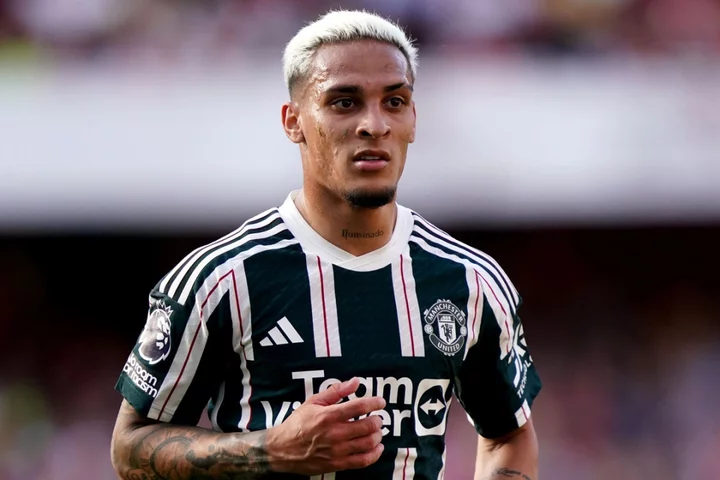
Manchester United deny attempting to ‘cover up’ allegations Antony attacked ex-girlfriend
Manchester United have denied that they attempted to cover up allegations of physical abuse levelled at Brazilian winger Antony by his ex-girlfriend. The 23-year-old was dropped by Brazil after accusations of physical aggression on a number of occasions since January towards his former partner Gabriela Cavallin. Antony, who has made 31 appearances since Cavallin made a complaint to Greater Manchester Police (GMP) in January, has denied the claims. Cavallin’s lawyers have suggested to Sao Paulo Civil Police that United sent a player-support officer to the Hyatt Regency Hotel in Manchester, where an alleged assault took place in January, and that the officer called for a club doctor to assess her injuries to deter her from attending hospital and arousing suspicion. Her lawyers have asked Sao Paulo Police to investigate the support officer’s actions and have requested CCTV footage from the hotel, according to reports in Brazil. However, Manchester United issued a short statement rejecting the claims. “Any suggestion that the club covered up these allegations is categorically false,” it read. In an interview with Brazilian website UOL – which also published photographs and screenshots of messages between the pair – Cavallin claims she was attacked by Antony “with a headbutt” in the Manchester hotel room on 15 January, leaving her with a cut head which needed treatment. Cavallin, a social media influencer, also alleges she was punched in the chest by Antony, which she claims caused damage to a silicone breast implant which required corrective surgery back in Brazil. Another alleged incident is claimed to have taken place at a house on 8 May, with Cavallin saying she suffered a cut finger while trying to protect herself, accusing Antony of throwing a glass cup towards her as well as then taking her passport. Cavallin is said to have filed a report to Sao Paulo Civil Police concerning allegations of physical and verbal abuse by Antony while on holiday in Brazil during June 2022, when she was pregnant, as well as making a separate complaint to GMP. “Manchester United acknowledges the allegations made against Antony and notes that the police are conducting enquiries,” said an initial club statement. “Pending further information, the club will be making no further comments. As a club, we are taking this matter seriously, with consideration of the impact of these allegations and subsequent reporting will have on survivors of abuse.” Brazil have dropped Antony from their squad for their upcoming international fixtures but United have not said whether the player remains available for selection. Writing on Instagram earlier this week, Antony, who signed for United from Ajax in an £85.5m deal in September 2022, dismissed the claims as “false accusations”. “From the beginning I have treated this matter with seriousness and respect, providing the necessary clarifications before the police authority,” he wrote. “However, I can calmly state that the accusations are false and that the evidence already produced and the other evidence that will be produced demonstrate that I am innocent of the accusations made. “My relationship with Gabriela was tumultuous, with verbal insults from both sides, but I never committed any physical aggression. Therefore, I come to vehemently deny the accusations made and inform you that I remain at the entire disposal of the Brazilian authorities to clarify whatever is necessary. “I trust that the ongoing police investigations will demonstrate the truth about my innocence.” Additional reporting by PA
1970-01-01 08:00

Why Israel Adesanya vs Sean Strickland may turn ugly, quickly
It was a disconcerting sight: Sean Strickland, with his hands low and a sheepish look across his face, shuffling towards one of the most devastating punchers in the UFC. There is no ‘but’ to follow; Alex Pereira swatted the American down to a knee with a signature left hook, Strickland’s arms flailing helplessly before he stood up into a right cross, which sent him cascading dangerously to the canvas. The manner of this demise at the heavy hands of the Brazilian brought to mind a mythical image: that of a lemming wandering mindlessly off a cliff. Yet Strickland’s approach until that point had actually been understandable – not as understandable as grappling with Pereira, as most expected him to, but sensible in a certain sense. The southpaw was pressing forward relentlessly with constant output, fighting behind a jolting jab, trying to prevent Pereira from setting his feet to muster power. Pereira, however, exploited Strickland’s reflexes. With kicks and jabs to the body, Pereira gradually lured Strickland’s habitual parries away from his head. Then, with one subtle, feinted crouch, Pereira created space to curve a left hook onto the chin of the American. With that, Strickland was undone – as was his six-fight win streak, which had stretched from 2022 back to 2018. In his next fight, the 32-year-old was again beaten, losing a split decision to Jared Cannonier. Just a few weeks prior, Pereira had stopped champion Israel Adesanya against the fence, moving to 3-0 overall against his old kickboxing rival, despite the latter’s vast experiential advantage in MMA. Adesanya would bounce back five months later, regaining the middleweight title at the first attempt with his own knockout of Pereira, who would make a quick turnaround with a successful debut at light-heavyweight in July. All the while, Strickland followed the examples set by Adesanya and Pereira, bouncing back with a victory; two, in fact. First, the controversial, outspoken American would outpoint Nassourdine Imavov in January, stepping in as a late-notice replacement. Then, in July, Strickland proved wrong many fans by stopping Abus Magomedov in the second round, before making an impassioned callout of Adesanya – whom he has mocked regularly in recent years, from a distance and from mere metres away. Still, the UFC seemed set to overlook Strickland, who once expressed his desire to ‘kill’ an opponent someday (not that they would have overlooked him because of that or any kind of controversial comment, based on past cases). “If I killed somebody in the ring, it’d f***ing make me very happy,” he said in 2021, demonstrating that he is better at employing his fists – and he is often criticised for that ability, even – than using any filter. “Like, if Uriah [Hall] hits me and maybe I have a brain aneurysm and die, you’ll hear me saying: ‘I’m okay, that’s a good death.’ We’re all going to die sometime. You know, might as well end in a good way. We’re all going to the same place, man. It’s either gonna be then or now. Just enjoy it.” Meanwhile, his teasing of Adesanya, who is as flamboyant outside the ring as he is in it, has relied heavily on outdated jibes with an uncomfortable undertone. In response to one recurring slight, Adesanya has vowed to knock out Strickland with fists adorned with painted nails. And the Nigerian-New Zealander, 34, will get the chance to do that on Saturday, when he defends his middleweight title in the main event of UFC 293 in Sydney. For Strickland’s campaign to fight Adesanya eventually paid off, specifically when Dricus Du Plessis – towards whom the champion holds a grave grudge – was taken out of the title picture due to injury. Adesanya vs Du Plessis may yet come to pass, and if it does, Adesanya will likely have more harsh words for the South African, at whom he has already lashed out viciously. It is worth noting at this point that Adesanya himself has gotten away with distasteful comments before, and that many fans believe he has misconstrued certain points made by Du Plessis. In any case, first up for him is Strickland. Adesanya has been the betting favourite in all but one of his UFC bouts, even his rematch with Pereira, and that is no different against Strickland. The “Last Stylebender” is expected to dissect and damage his challenger at will. While Adesanya possesses less power than Pereira, he is an even more dynamic striker than the Brazilian, and he can employ the kind of counter-strikes that Strickland risks walking straight into – if the latter’s approach against Pereira is anything to go by. Adesanya’s fans are excited by that prospect. Many of Strickland’s fans have been more enthused by the verbal warfare than the impending physical warfare. Some have forgiven Strickland for certain comments due to his recollections of a concerning, upsetting relationship with his late father. Adesanya, who lives for nights and atmospheres like Saturday’s in Sydney, will not allow himself to forgive Strickland for a single word. The champion has always harnessed anything and everything to hype himself up for a title showdown. The build to UFC 293 has already threatened to turn ugly. Adesanya, famed for his beautifully destructive performances, will hope to turn things ugly for Strickland when the cage door closes. Read More Adesanya vs Strickland live stream: How to watch UFC 293 online and on TV this weekend Jared Cannonier revealed as back-up fighter for Adesanya vs Strickland at UFC 293 Conor McGregor finally receives black belt in jiu-jitsu Back-up fighter revealed for Adesanya vs Strickland at UFC 293 Mark Zuckerberg trains with UFC champions on speedboat UFC 293 card in full as Adesanya defends title against Strickland this weekend
1970-01-01 08:00

Where to Upgrade Your Ship in Starfield
Here's where you can upgrade your ship in Starfield.
1970-01-01 08:00
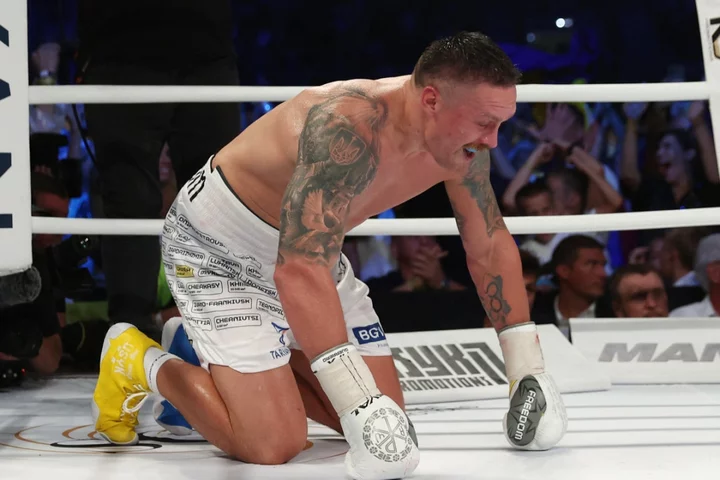
Daniel Dubois’ promoter Frank Warren appeals Oleksandr Usyk result and pushes for rematch
Daniel Dubois’s promoter Frank Warren has appealed the result of the British heavyweight’s fight with Oleksandr Usyk, while pushing for a rematch. Dubois was stopped by Usyk in Round 9 on Saturday 26 August, after the Briton floored the unified heavyweight champion in Round 5, only for his body-shot attempt to be ruled a low blow. Usyk was therefore granted five minutes to recover, and the Ukrainian used approximately three of those minutes before the bout in Wroclaw, Poland, resumed. Usyk, 36, then dropped Dubois, 25, in the eighth round and did the same in the ninth, with the Briton failing to beat the referee's count. With the result, Usyk remained unbeaten and retained the WBA, WBO, IBF and IBO heavyweight titles. Warren has now lobbied for a No Contest and a rematch, he told the BBC, while boxing journalist Dan Rafael took to X to post a screenshot of what appears to be the appeal. The appeal to the WBA (World Boxing Association) centres on the claim that Usyk would not have beaten a hypothetical referee’s count if Dubois’s punch in Round 5 had not been ruled a low blow. “Owing to what this appeal argues were errors in judgement made by the bout’s referee, Luis Pabon, Daniel Dubois was unjustly denied of his rightful status as unified world heavyweight champion,” read the apparent appeal shared by Rafael. It continued: “Approximately 20 seconds into the fifth round, Mr Dubois landed a body blow that dropped and severely hurt Mr Usyk and, seemingly, crowned Mr Dubois the heavyweight champion. However, the blow was incorrectly adjudicated as low by Mr Pabon. “Instead of being knocked out, Mr Usyk was given a substantial recovery period, which allowed him to regain his strength and continue the bout without impediment.” Usyk won the unified heavyweight titles with a decision victory over Anthony Joshua in 2021, before repeating the trick against “AJ” in 2022 to retain the belts. The southpaw has been linked with a fight against Tyson Fury for the best part of a year, though the WBC champion is due to fight ex-UFC heavyweight champion Francis Ngannou in October. Click here to subscribe to The Independent’s Sport YouTube channel for all the latest sports videos. Read More Chris Eubank Jr’s coach remanded in custody following airport arrest Oleksandr Usyk remains heavyweight champion but where does he go from here? Finally, Ricky Hatton has his happy ending
1970-01-01 08:00
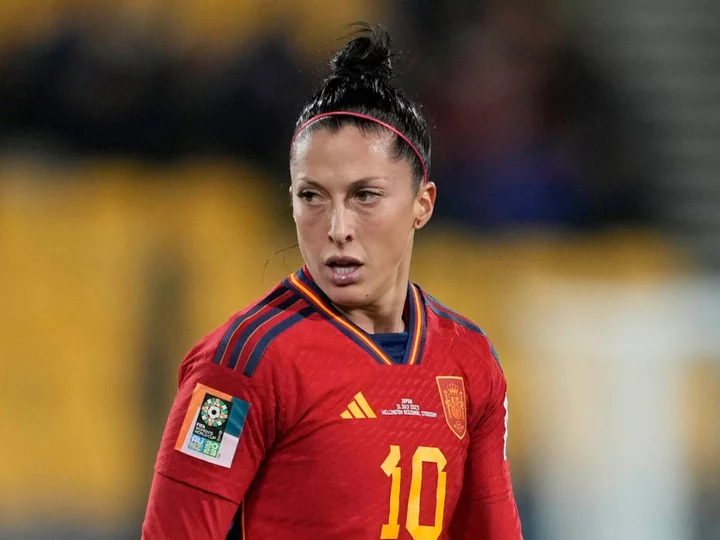
Luis Rubiales could face criminal charges after Jenni Hermoso accuses Spanish FA president of sexual assault
Spanish football star Jenni Hermoso has filed a legal complaint over an unsolicited kiss by football federation boss Luis Rubiales following Spain’s win over England in the Women’s World Cup final, the national prosecutor’s office said on Wednesday. With the complaint, Rubiales could face criminal charges in addition to the ongoing probe by Spain’s top sport court for “serious misconduct” and an investigation by world governing body Fifa. The kiss occurred minutes after Spain won the World Cup, immediately prior to lifting the trophy as the squad received their medals and passed a line of dignitaries – one of which was Rubiales in his position as president of the Royal Spanish Football Federation (Rfef). There, he was seen planting a kiss on Hermoso’s lips – which the player says was not consensual and Rubiales insists that it was. While the crisis engulfing Spanish football has centred around Rubiales’ position and conduct, it has not been limited to the president, with head coach Jorge Vilda sacked from his post this week and claiming it to have been an “unfair” decision. Rubiales, meanwhile, continues to protest his innocence in the situation, releasing a statement to say “justice will be served” and that “information [...] is being subjected to numerous manipulations, lies, and censorship”. Spanish prosecutors initially opened a preliminary investigation into whether the incident amounts to a crime of sexual assault, with the office now saying the legal complaint has been filed. The national sports tribunal also opened a misconduct case against Rubiales, ruling the kiss on Hermoso constituted a “serious offence”, but not one to the degree which would have resulted in his suspension. However, he has already been suspended from his duties by Fifa, while Uefa also said his behaviour was “inappropriate”, but are leaving any sanctions to the game’s governing body to hand out. Meanwhile, the Rfef’s regional leaders have called for Rubiales’ resignation from the head of the organisation. Rubiales’ mother locked herself in a church and went on a hunger strike as the controversy around her son broke out, insisting she was “willing to die” to protest his innocence. However, she was eventually taken to hospital for treatment. Former England international Jill Scott said this week that the saga had “overshadowed” the enormous sporting achievement of the Spanish squad having won the World Cup, while every member of the squad have refused to play for Spain again while Rubiales remains head of the federation. Neither Hermoso’s representatives nor Rubiales were immediately available for comment. Read More Sacked Jorge Vilda defends clapping Luis Rubiales’ ‘I will not resign’ speech Luis Rubiales fallout live: Spain boss Vilda hits out at ‘unfair’ sacking Jill Scott says World Cup kiss saga ‘overshadowed’ Spain playing ‘great football’
1970-01-01 08:00
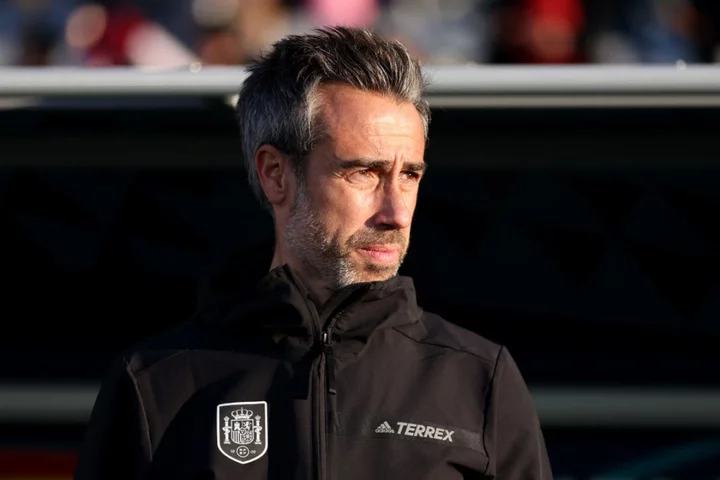
Luis Rubiales fallout live: Rfef boss accused of sexual assault while Jorge Vilda hits out at ‘unfair’ sacking
Luis Rubiales is fighting to clear his name and remain in his job as president of the Spanish FA (Rfef) amid increasing pressure and criticism after his conduct across the Women’s World Cup final. After kissing Spain’ Jenni Hermoso, with the player insisting it was without consent and not welcomed, the fallout has seen the Spanish federation widely criticised for their lack of immediate response and Rubiales’ insistence he is in the right. Meanwhile, manager of the women’s team Jorge Vilda has been sacked, adding a further layer to the ongoing discussion and subsequent changes at the head of the federation. Follow all the latest updates regarding Spain’s women’s team, Rubiales and Vilda below.
1970-01-01 08:00

Greece floods – live: Skiathos flights cancelled as flooding across Europe traps tourists
Further storms are set to batter a Greek island where hundreds of British tourists are stranded following flash floods. At least one person was killed and five others are thought to be missing after cars were swept away and streets submerged by rainfall in parts of Greece on Tuesday. It comes as the World Meteorological Organisation said that the northern hemisphere experienced its hottest summer on record, fuelled by climate change. Skiathos, a popular holiday island in the northwest Aegean Sea, was forecast to be hit with heavy showers and thunderstorms throughout Wednesday morning. Holidaymakers on the island have been left with “no way to get food” with many currently unable to get to the airport. One stranded tourist said the centre of Skiathos is “underwater” and described the situation as “horrendously scary”. Flooding is also affecting parts of Turkey and Bulgaria with the death toll across the three countries currently at 11. Read More UK’s hottest day of the year likely to be on Saturday, Met Office says The death toll from fierce storms and flooding in Greece, Turkey and Bulgaria rises to 8 It’s September but the sun is still dangerous – here’s how to stay safe
1970-01-01 08:00
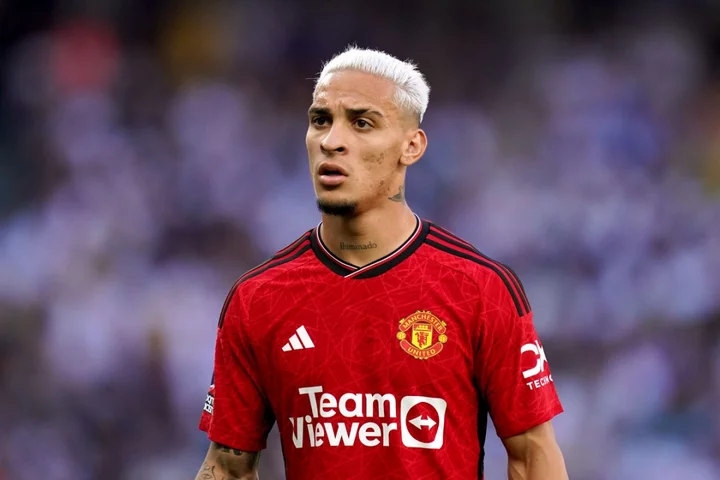
Manchester United break silence on Antony after alleged attack on ex-girlfriend
Manchester United have said they take “seriously” the allegations that Brazilian winger Antony attacked his ex-girlfriend, but the club have not confirmed whether an internal investigation will now take place. Brazil have dropped the 23-year-old from their upcoming international fixtures, but United have not clarified whether he remains in contention for club selection. “Manchester United acknowledges the allegations made against Antony and notes that the Police are conducting enquiries,” a statement read. “Pending further information, the club will be making no further comments. “As a club we are taking this matter seriously, with consideration of the impact of these allegations and subsequent reporting will have on survivors of abuse.” In an interview with Brazilian website UOL – which also published photographs and screenshots of messages between the pair – Gabriela Cavallin claims she was attacked by Antony “with a headbutt” in a Manchester hotel room on 15 January, leaving her with a cut head which needed treatment from a doctor. Cavallin, a social media influencer, also alleges she was punched in the chest by Antony, which she claims caused damage to a silicone breast implant which required corrective surgery back in Brazil. Another alleged incident is claimed to have taken place at a house on 8 May, with Cavallin saying she suffered a cut finger while trying to protect herself, accusing Brazil international Antony of throwing a glass cup towards her as well as then taking her passport. Cavallin is said to have filed a report to the Sao Paulo Civil Police concerning allegations of physical and verbal abuse by Antony while on holiday in Brazil during June 2022, when she was pregnant, as well as making a separate complaint to Greater Manchester Police (GMP). Writing on Instagram, Antony, who signed for United from Ajax in an £85.5m deal in September 2022, protested his innocence in response to what he called “false accusations”. “Out of respect for my fans, friends and family, I feel obliged to speak out publicly about the false accusations I have been the victim of,” Antony said. “From the beginning I have treated this matter with seriousness and respect, providing the necessary clarifications before the police authority. The police investigation is under judicial secrecy, and therefore I cannot make its contents public. However, I can calmly state that the accusations are false and that the evidence already produced and the other evidence that will be produced demonstrate that I am innocent of the accusations made. “My relationship with Gabriela was tumultuous, with verbal insults from both sides, but I never committed any physical aggression. At each moment, whether in testimony or in an interview, she presents a different version of the accusations. “Therefore, I come to vehemently deny the accusations made and inform you that I remain at the entire disposal of the Brazilian authorities to clarify whatever is necessary. I trust that the ongoing police investigations will demonstrate the truth about my innocence.”
1970-01-01 08:00
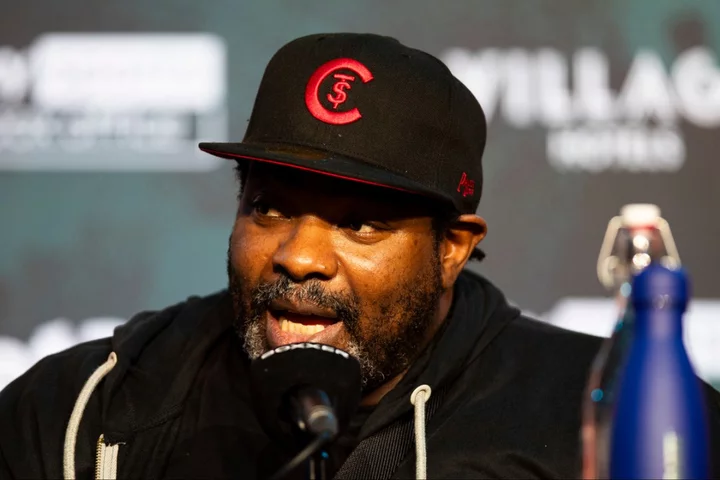
Chris Eubank Jr’s coach remanded in custody following airport arrest
Chris Eubank Jr’s coach has been charged following his arrest at Manchester Airport on Sunday, when a gun was found in his suitcase. Brian “BoMac” McIntyre, who guided Eubank Jr to a stoppage win over Liam Smith on Saturday, was detained by armed police after a scan of his checked-in luggage revealed the presence of a firearm and ammunition. The American, 53, was due to fly from Manchester – where Eubank Jr beat Smith at the AO Arena – to Atlanta in the United States. A statement from Greater Manchester Police on Monday read: “At around 10.45 am on Sunday 3 September 2023, officers were called to reports of a possible firearm being found in hold luggage by airport staff at Manchester Airport. After initial inspection by security staff, GMP officers attended, and the firearm was seized. Subsequently, a man has been arrested for possession of a firearm and remains in custody for further questioning.” A follow-up statement on Tuesday read: “Brian McIntyre (01/07/1970) from the United States of America was charged with possession of a firearm and possession of ammunition for a firearm without a certificate. “McIntyre attended Stockport Magistrates court this morning where he was further remanded into custody. He is next due to appear at Manchester Crown Court on Monday, 9 October 2023.” Greater Manchester Police confirmed to The Independent that McIntyre will remain in custody until that date, when a plea will be entered. Eubank Jr’s win against Smith, which came eight months after the latter beat Eubank Jr via TKO, marked McIntyre’s first time teaming with the Brighton middleweight. Former boxer McIntyre also coaches Terence Crawford, who is seen by many as the No 1 pound-for-pound boxer in the world. The unbeaten Crawford produced a masterclass against Errol Spence Jr in July, handing his fellow American his first professional loss to become undisputed welterweight champion. The southpaws are expected to clash again later this year or early next year, after Spence Jr triggered a rematch clause last week. Read More Chris Eubank Jr banishes demons by stopping Liam Smith to cap off slick showing Chris Eubank Jr salvages career on night of sweetest revenge Punch stats highlight Chris Eubank Jr’s dominance in Liam Smith rematch
1970-01-01 08:00
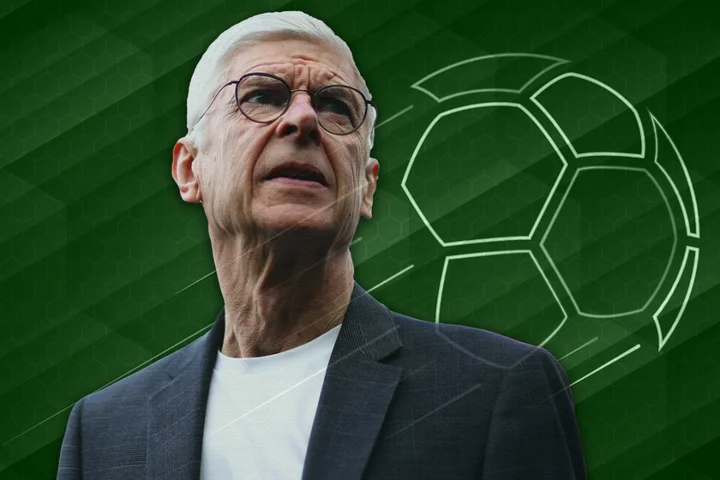
Arsene Wenger reveals his blueprint for the future of football
There are still moments when Arsene Wenger sits at his desk in Zurich – of course overlooking every type of pitch, from 11-a-side to beach football – and wonders about the scale of the task he has taken on. Perhaps facing Sir Alex Ferguson or Pep Guardiola was easier. “When you sit here and think, ‘I have to improve football in the world’, you realise that it’s not easy, you know," Wenger laughs, before gesturing to the pitches below. "I would rather say ‘give me a team and down there I can show you what I can do’. But once you sit here and say, 'how much, 211 countries? OK, thank you very much!’” And yet, as great as Wenger’s managerial legacy is, there are so many moments in speaking to him about his role as Fifa chief of global football development when it’s impossible not to wonder how much the wider game could have benefitted from his rare insight. “I can understand that as long as I was at Arsenal I didn't care too much about that because I had to win the next game," he says. "Once you have a global vision of world football, you realise something is not right.” Wenger has probably attracted most focus in the role for fronting the move for a biennial World Cup, but his real work – and a truly great responsibility – is raising the level of the sport across the planet so every country and every child has a chance. “I believe really football can change the world,” he said at the Fifa Women’s Football Convention in Sydney last month. “Not just on the football side, the human side. That’s the next step.” Wenger is sitting here on transfer deadline day explaining in a wide-ranging interview with the Independent exactly how. It is a particular challenge when he goes to countries like Cote d’Ivoire and the president tells him they haven’t had an official youth game in five years. “And here you have Yaya Toure, Didier Drogba, Kolo Toure, you know we have the players, it’s a football country,” Wenger says. “I always think there’s a little girl or a little boy who has a dream, has the talent and no opportunity.” It’s all the more frustrating for Wenger since there is now a strong argument that football is the most popular cultural pursuit the planet has ever seen, particularly with the way it spreads into the United States and India, all while developing huge money. Most of that, however, stays in one corner of the globe. “In Europe, it's all done and we are a little bit not conscious of the needs elsewhere, because in some countries there's no [football] education… it’s incredible. “Football is conquering the world at an unstoppable speed and at the moment there is a dysfunction between the audience and the practice in some countries.” In other words, there aren’t the resources to match the interest: the dream. Wenger talks about how the first steps to solving this are creating free centres of excellence for the best young talent and spreading out from there to create grassroots structures. Fifa is currently funding 25 academies, and the former Arsenal manager recently had the coaches involved at his office for the final preparations. Such is the nature of the discussion and the nature of his thinking, though, that an hour-long interview spreads into all manner of areas. They include: How football may have to “create striker schools” to solve a lack of goalscorers How modern academies offer high technical quality but have meant “we lose a bit of that freedom, that creativity” How pressing has affected that “The trend in some academies is to recreate park football” How football isn’t producing anywhere near as many good players as it could “Does the world produce enough good players? I think no” How this has led to an inflated transfer market, where “everybody thinks the same” Why countries like Croatia and Uruguay are so repeatedly successful How football is addressing these issues There’s then the vintage manner he offers profound insights about football, and seemingly simple lines that capture so much, just in sitting there talking about it. Employing Wenger to directly study the game only amplifies that, which is what he has spent the last few years doing since taking the job in 2019. “We analysed football in 205 countries and we found in half of the world there’s a deficit in education… which I mean as identification of talent, coaching programme, quality of coaching, quality of the competitions and integration in the first team. “What we basically found out by analysing the whole world is there’s a huge correlation between the quality of the educational system and the results in the first team. That was mathematics. “We proposed to each member association to help them to develop the education. Basically, if you have no education in life, you have no chance so my purpose was of course to change that.” Some of the challenges themselves come from what has been one of the most transformational factors in the modern game. That is the way a sequence of wealthy western European countries like France, Spain, Germany and now England have essentially industrialised talent production. Wenger himself points to how Clairefontaine-fashioned underage teams were thrashing England’s when he arrived at Arsenal in 1996, but that no longer happens. England has caught up. It’s put to him that the old line from journalist and former footballer Eamon Dunphy - that “dictatorships and poverty” produce good footballers - no longer applies. It is typical Wenger, though, that immediately leads to another fascinating path of discussion. “No, no, I would say it's quality of education. What has dropped in recent generations is that of course park football has disappeared and now the trend in some academies is to recreate again what happened before. The game itself is a good coach. “Why? Because, if I play in the park, I have to make decisions. If I’m shrewd enough to think why did that not come off, and have a right assessment, the next time I am in the same situation I am correct. We have lost that a little bit. And maybe today we are overcoaching a little bit sometimes, and we lose a bit that freedom, that creativity, that individual personalised training that happened before.” A classic example of what Wenger is talking about comes from one of the most famous goals of all time. In bearing down on Peter Shilton in the 1986 World Cup quarter-final, Diego Maradona remembered a previous occasion when the England goalkeeper went one way. So, at this moment of heightened tension and consequence, the Argentina great went the other way. The rest is history, but the evolution since has removed something from the game’s present. Wenger believes the greatest cost of the more homogenised academy system is with that fundamental of the game - putting the ball in the back of the net. Or, more specifically, he believes it has resulted in a decline in strikers that has inevitably brought a decline in classic centre-halves, too. READ MORE: ‘Would Messi still have been Messi?’ A lost generation of future footballers The hermetically sealed nature of modern academies has meant young players are not “educated for the fight” in the same way. “I think football has improved dramatically all over the world but some positions today are more difficult to find because maybe the evolution and the quality of the coaching has suppressed natural fighting qualities in positional play. “The emphasis has become more on quality of passing, quality of coaching. What you lost from the wild football is, if you go out now to a training session here, it will be built to start with passing, after that the quality of possession. “Before, the training pitches were not good, so you had to lift the ball to the striker. A striker had to fight to get the ball so, naturally, you develop qualities that, with the passing, you develop a little bit less. “If we go out there and play in the park, you think you have to score goals to win the game. Then you have to fight. “As well, the man-to-man marking has disappeared so it’s easier to get the ball. You are less confronted with fight. You see that in Germany. Since they play zonal they don’t produce strikers anymore. “If you look at the global evolution, we have moved away from defenders who only defend, from strikers who only attack, from midfielders where some defend and some attack, to be more demanding completely. Technically, today, the players in every position need to be better because of higher demands than 30 years ago. The pace is higher, the athletic side is higher. So, today, the right-back is technically better, the centre-back is technically better. Of course, you had exceptions in history but maybe it has also kicked out specificity; the creativity of some players because of the pace. “Overall, every player in each position has become a more complete player. I would say because we have gone in a more specific passing game today, the demands on the striker to score is smaller than it was before. Jurgen Klinsmann made an interesting point on that at the World Cup. He said to me. ‘I played with only one thing: I have to score. I feel the strikers today judge their own game by how they combine with other players. I only judged my game on did I score or not.’” READ MORE: The Premier League is having an identity crisis – but one thing can save it So, how does football solve this? Wenger believes this is being deeply considered, and that Erling Haaland represents a throwback who could point to a new spin on an old way. “At the end of the day, no matter what you do, football is always the quality of the one who gives you the ball and the one who puts it in the net. It’s true you find more good passers now than finishers. “And you can develop these qualities. I think it’s something that will be addressed. Now, after 15 years of age, we have to start specialisation and positional play. “Finishing under pressure. Finishing by being challenged and the quality of the movement… to get that responsibility on their shoulders, that their focus every day is to score, to fix them targets. So maybe we have to create striker schools, internally inside the club, or more specific work. I think it’s on the way to happening now. “If I look at Haaland, Haaland is for me the real typical striker. He looks like he is ready for the fight, ready to be focused on only scoring goals. Like [Olivier] Giroud is a real striker in mentality, that explains why he’s still playing at 36, 36. And [Zlatan] Ibrahimovic, [Karim] Benzema, they have been educated for the fight, they have been educated to finish as well. “In France now, you have some good strikers again. Germany, where they had big strikers, they have less. They are thinking now how they can change that again.” It may bring a change in centre-halves, too, given how interlinked the two roles are. As someone who used to play in that area himself, Wenger now feels Jamie Carragher is right that it might be the most demanding position in the game. “At the end of my career, you wanted centre-backs to play out from the back. Today you want the centre-back to play like a number-10 and to defend as well, to be tough. Fighting and to play. It’s tough to always find that balance.” That, for Wenger, is also where the beauty lies. “You know, football is magic for me because there is a good balance we have to make between the technical, the physical and the tactical,” Wenger adds. “So, for example, one of the things we are cautious to change is the offside rule because we want to keep that balance right. READ MORE: The trick that made Erling Haaland the ultimate finisher – in more ways than one If I play for example against [Kylian] Mbappe, the only advantage I have is to play him offside. If offside is even more difficult for me to play, I have no chance anymore. So what can I do? When his team has the ball I can run in the box because I wait for him. The rest, I have no chance! Haaland is the same. “So, when you press, the defence has to move up, and the space is behind me. Against the quick players, it becomes even more difficult. That is a good example of the evolution of the game. The attack gives you a new problem. The defence responds by analysing your superiority. Then the attack finds a new solution and creates again a new problem and the defence comes behind. “So I would say now how do you slowly fight against the pressing, it’s by getting the players better technically. Evolution is created by opposition.” There is a similar dynamic in the transfer market, which has influenced some of this summer’s excesses. Whereas it used to be that Luis Figo and Zinedine Zidane would command the record fees because they were in their prime and had established careers that offered absolute proof of quality, that sort of expenditure is now geared towards much younger talent. Even teenagers like Rasmus Hojlund and Jude Bellingham have gone for huge fees. Part of that is their ability, particularly with Bellingham. Part of it is the premium on their positions, particularly with a striker like Hojlund. Part of it is the thinking. “What is happening now is because clubs think that confirmed players are so expensive, they try to fight for the younger players. They are thinking they will get them at the cheaper price. The fact that everybody thinks the same makes the prices of the younger players too high, in my opinion. Why? Because it is at 19, 20, 21 where you see if the player has the capacity to cope with the pressure. READ MORE: The year that sportswashing won: A season that changed football forever “For the confirmed players, with the high levels of transfers come high wages and even clubs like Real Madrid cannot cope with both. What is the trend in the top markets? They get the players to go to the end of the contract to be capable of giving the players the wages they want. And it looks like now the competition with Saudi Arabia will even increase that, so overall I would say there’s more fight for the young players. “But two questions. Does the world produce enough good players? I think no, and I believe as well that the prices depend on the identity of the buyer. If he is tomorrow president of Young Boys Berne [gesturing towards Fifa media officer Stefan Curtis] and I am Arsenal, I will come to see him. ‘Who are you? Arsenal, OK, English, I have a good player.’ In Switzerland he would sell for £5m, in England for £50m. So somewhere, the identity of the buyer fixes the price.” It’s a theme that brings together much of Wenger’s work, and why it is so important for the game, as well as how it’s played. So much of the money is concentrated in western Europe, and particularly the Premier League, which has in turn generated even more mega interest around the rest of the world. Many countries don’t have anything like the same resources, though, which has meant they cannot maximise the potential talent. The talent they do have is meanwhile quickly bought up, reducing the quality of their domestic competitions as well as the money the football culture can consequently invest. Part of Wenger’s great mission, beyond just changing the world by changing the football world, is to lift the level of their entire game; to restore a vitality. “I believe the globalisation of the world has concentrated the big money in a few number of clubs,” Wenger emphasises. “his few number of clubs has a huge potential and the rest of the world watches the Premier League. So, what does a guy in China or South Africa do in the morning? He thinks ‘ah, Premier League.’ Why? Because the best players play there and that reinforces the Premier League even more, so that means the concentration of the money in the small number of clubs has created even an inflated market. “And then once you have all the best players in the world in the same league, that means if I have a Chinese player in the Premier League, all China will watch the Premier League. That reinforces even more that superiority. “What I want to create is that in Angola, for example, we produce as well players who are good enough to produce a quality in their own championship, that the guy can have a choice. ‘Yes, I will still watch the Premier League but in my league something is happening as well - oh, here we have as well some good players’. Then it creates interest. “That’s why I tell you the deficit of education today is detrimental to the quality of the championships and as well to the quality of the national teams worldwide.” This is the “dysfunction” Wenger spoke about. “For example, the television audiences in India are very high, in China very high, but the players are not educated at the same pace,” Wenger maintains. “What we want is to provide them with the capacity to play. That’s our target.” If the targets are the same for every country, the challenges are different. While an emphasis will inevitably be on countries of inferior resources, those with more resources can bring the opposite problem, which is privatised football; or coaching that costs parents more money. The most obvious example is the United States’ “pay to play” system. “We have in some countries a lack of football culture,” Wenger concedes. “A lack sometimes of structures, and in some countries, because the private academies have taken over, a child from a poor background cannot pay to get into the football school. It’s exactly the reverse of what I want to do.” It’s also the opposite of what football represents. “You can play with an orange or you can make a ball with paper. That’s why football is so popular. But today if you want to get to a good level of education in football, in some countries you don’t get it. I find that not right because, in many countries, there are some private initiatives, but the parents have to pay to get the children in there. “For me it doesn't matter if you're rich or poor. If you are good, you come in. Our academies are free, just open to talent. You have to adapt and find a solution in every country.” *** It is here when another Wenger thought opens a whole new avenue of discussion. In this case, it is how some national teams constantly overperform. “What we found out, and what explains countries like Croatia, like Uruguay – who are small countries, three million people – is that a number of good players on a short surface is more important than a number of good players on a big surface.” In other words, they’ve realised how to use their size to an advantage, by being able to bring the best talent together more easily and enjoy a multiplying effect. “I realised 40 years ago from a study I made for Netherlands, why I want to put the best with the best. Because they play against each other, they stimulate each other. That explains countries like Netherlands, Croatia, Uruguay. “They keep creating teams and players because they have a good level of education and identification of talent. “Croatia was in the last four of the last two World Cups so that means success is not limited to big countries. It is just limited to the quality of education and organisation.” It is also a newly romantic virtue of international, that has inverted a lot of football history. It now offers a vitality that the club game can’t. No matter how big the population, international managers have to make do with what they have. The biggest clubs just buy what they lack. “Yes, the international team game is rewarding the quality of the educational work. The club game, and I am a big fan of big clubs, is the recruitment of the best players from all over the world. It’s fantastic, but I think you need the two, to give everybody the chance. “For example, Croatia today cannot compete with their clubs, at the top level, because the players leave early. Then they come back and compete with their national team so they are rewarded for the quality of their work. READ MORE: The famous Croatia shirt is transforming good players into World Cup greats “That’s our target. In Africa, it’s the same. In Concacaf it’s the same. I come back from Australia, football is unstoppable. “The boy or the girl wants the dream. When they watch football players, when they see the World Cup, when you watch it, you have the dream, which is to play football and to lift the World Cup. We create the dream. But we do not have at the moment the capacity to fulfil this dream.” That’s what he is pondering as he sits at that desk. It is in some ways the same as when he was a club manager, speaking to why the game is so popular. It’s to fulfil the dream. Read More Sportswashing is about to change football beyond anything you can imagine How modern football became broken beyond repair ‘Would Messi still have been Messi?’ A lost generation of future footballers Arsene Wenger defends Fifa’s time-wasting crackdown Spain manager Jorge Vilda sacked by Spanish FA amid Luis Rubiales crisis Manchester United share price crashes by £500m after report Glazers may not sell
1970-01-01 08:00
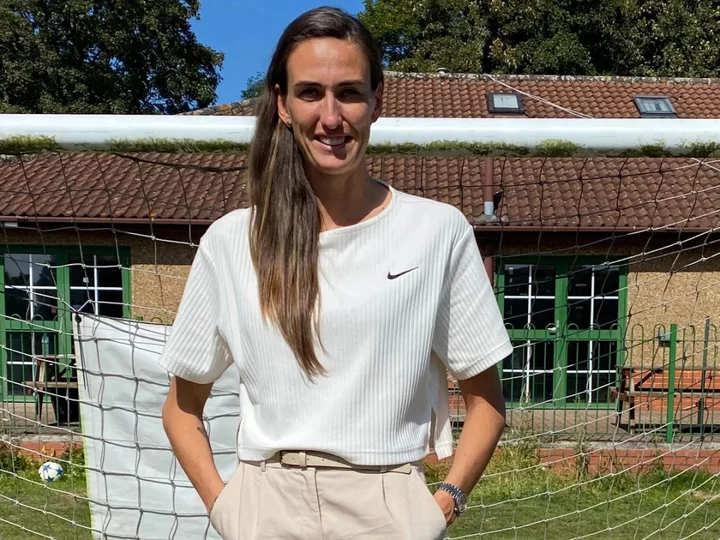
Jill Scott says World Cup kiss saga ‘overshadowed’ Spanish women’s team playing ‘great football’
Euro 2022 winner Jill Scott has voiced “disappointment” that the World Cup kiss saga has detracted attention from the Spanish women’s team win. The former England midfielder told The Independent that issues within Spanish football have “overshadowed” the team’s “great football”. Her comments come after the president of the Royal Spanish Football Federation Luis Rubiales has come under sustained criticism for kissing player Jenni Hermoso on the lips after Spain secured their 1-0 win over England last month. Rubiales, who was also condemned for grabbing his crotch after Spain won the women’s world title for the first time in history, has refused to step down over his behaviour but was suspended by Fifa. It comes as Jorge Vilda, head coach of Spain's women’s team, was fired on Tuesday after he was among those who praised Rubiales’ refusal to step down. Scott said she felt “disappointment” that the kiss has been “the main talking point”, rather than Spain actually winning the World Cup. “I know that there were girls that decided not to go to the World Cup because they weren’t happy with the way things were going. And that for me is just so sad to hear because it’s a dream to play in a World Cup. “I was so fortunate that I got to do that four times, and it’s something that you dream of from being a young girl, and to think that was taken away from them. First and foremost, that is sad.” Speaking to The Independent in a wide-ranging interview, the Lioness also discussed the bullying she endured as a young girl playing football at school. She said people often thought she was a boy because she played football and questioned how girls could play the game. The 36-year-old said it was “unusual” to see girls playing football back then and said she sometimes suffered worse bullying from parents rather than her classmates. “Sometimes for parents, if a young girl back then – I’m going back 30 years – beat their son, it was a bit of an embarrassment,” she added. Scott said she would attend football camps where she was the one girl alongside 50 boys, as well as going to football tournaments where she was the only girl. The former footballer said even though she was better at football than some of the boys she “never wanted special treatment for being a girl”. Scott added: “I just wanted to play football and as a young kid, I didn't understand why it was such an issue that I just wanted to play football.” She continued: “Once I stepped over that white line, that was where I wanted to be. I could escape everything.” Her comments come as new research by Starling Bank found three in 10 girls stop playing football when they get to their late teenage years – a far higher proportion than the one in ten boys who give up the sport. Researchers, who polled 2,000 11 to 16-year-olds in the UK, found that over a quarter of girls quit football over pressures to perform well at school. Meanwhile, 14 per cent stop playing because of insecurities about their body image and eight per cent bow out of football for being bullied for playing the game. Scott, who is an ambassador for the bank, said social media pressure was partly to blame as it puts pressure on girls to make them feel like they should look a particular way. “It’s kind of this perfect world isn't it, in a sense,” she reflected. “And I think we're all guilty of doing it. We don't want to post a picture unless you look good or if it’s filtered.” Scott explained she has coached football to girls aged between 13 and 15 and you can see they do not want to get “stuck into a tackle” or do not “want to get sweaty” due to anxiety about how they will look. Read More Spanish FA chief blames player for World Cup kiss and shouts ‘I am not resigning!’ in chaotic press conference Spanish soccer federation fires women's national team coach Jorge Vilda amid Rubiales controversy ‘He wasn’t raping her’: Woody Allen offers staggering defence of Spanish football boss Luis Rubiales ‘History in the making’: Lionesses’ Euros success sparks booming interest in women’s football Lioness Demi Stokes says misogynistic abuse online ‘really affected’ England players’ game
1970-01-01 08:00
